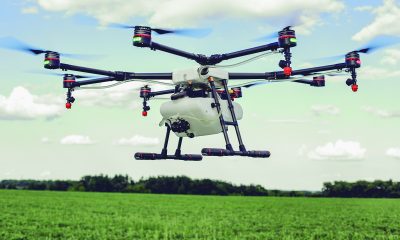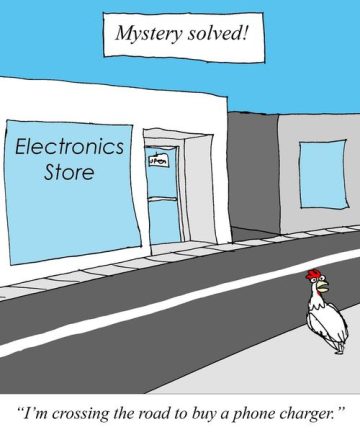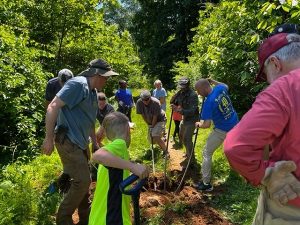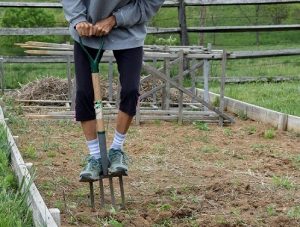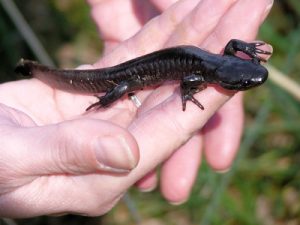Agriculture
Vilsack: America’s voluntary approach to agriculture is better than Europe’s mandates
BOONE, Iowa — The more than $1 billion the federal government is devoting to voluntary efforts to reduce agriculture’s adverse effects on the environment is a better long-term strategy than mandating new rules for farmers, U.S. Secretary of Agriculture Tom Vilsack said Tuesday.
While state and federal officials in the United States have tended to avoid implementing rules that might force farmers to radically change their long-held practices, the European Union has specific requirements about crop rotations, permanent pastures and the use of buffer strips and other conservation practices that improve soil quality.
Dutch farmers have protested some of their country’s efforts in recent years to limit pollution from agriculture, particularly proposals to significantly reduce the number of livestock raised in the country. The European Union also recently suspended some of its crop rotation requirements to increase production because of global food shortages caused by Russia’s invasion of Ukraine.
“Candidly, our view — and I’ve expressed this to EU officials — our view is that their approach may very well result in reduced production,” Vilsack said at the Farm Progress Show in Boone, in response to a question about whether U.S. farmers might eventually face similar requirements. He added: “I think our approach is better.”
Virginia’s General Assembly has in recent years debated whether certain agricultural practices that reduce runoff from farms should be voluntary or mandatory, particularly as the federal 2025 deadline for cleanup of the Chesapeake Bay looms. During the 2020 session, lawmakers weighed making both streamside fencing and nutrient management plans mandatory but ultimately settled on a voluntary course for the near future. The intensely negotiated final legislation included a clause, however, specifying that the practices will become mandatory if pollution reduction targets haven’t been met by 2025.
When asked to elaborate later about his comments, Vilsack said they pertained to organic farming and were the views of some European farmers. The European Green Deal seeks to increase the amount of farmland that is being managed to produce organic crops to 25% by 2030. The practice is more environmentally friendly but often produces lower yields.
The U.S. Department of Agriculture has offered programs to expand organic farming in the United States but hasn’t set goals for converting farmland to organic. Vilsack said Tuesday that demand for U.S. agriculture products will continue to rise.
“The challenge is, how do you do it sustainably?” he said. “How do you increase production but at the same time do it in a climate-smart way?”
He stressed repeatedly that federal initiatives announced in the past two years seek voluntary participation.
Later in the day, U.S. Rep. Randy Feenstra, R-Iowa, echoed those sentiments when he was asked about potential provisions of the upcoming farm bill: “We need to make sure we have voluntary conservation practices,” he said. “That is so crucial.”
Vilsack talked at length about the tremendous amount of federal funding available to support agricultural commodities that are produced in a way that reduces greenhouse gas emissions. In February, the USDA offered up to $1 billion to support new “climate smart” products.

U.S. Secretary of Agriculture Tom Vilsack tours an Amelia County farm in June 2021 along with Rep. Abigail Spanberger, D-Henrico. (Sarah Vogelsong / Virginia Mercury)
He said the USDA will announce its first grant recipients in mid-September and hinted that projects proposed by universities in Missouri and South Dakota and by the Iowa Soybean Association will be among them.
Vilsack and the USDA have unveiled a flurry of new programs in the past two years with the goal of transforming aspects of American agriculture, especially to help reverse the consolidation of certain sectors into the hands of a few companies and to increase the number of farmers.
The USDA is also working to provide billions of dollars of debt relief to farmers who have struggled to make payments on farm loans: “The most important piece of this is keeping people on the land,” Vilsack told reporters last week about major legislation to aid agriculture.
The USDA recently announced it will distribute up to $300 million for projects that help farmers who have received limited help from the department in the past. Those groups of people have typically included new farmers and ranchers, those with low incomes and those of racial or ethnic minorities. Eligible projects for the funding would expand their access to land, money and markets, Vilsack has said.
The department is also offering up to $250 million to minority-serving colleges and universities to help educate food and agriculture professionals.
In June, Vilsack announced hundreds of millions of dollars of funding to support smaller, independent meat processors to help diversify that sector of agriculture, which over the years has become dominated by several large companies.
Federal dollars have also been earmarked for organic farmers and to make new products from agriculture waste and the wood remnants from thinning forests to protect against large fires.
This story first appeared in the Iowa Capital Dispatch, a sister publication of The Virginia Mercury within the States Newsroom network.
by Jared Strong, Virginia Mercury
Virginia Mercury is part of States Newsroom, a network of news bureaus supported by grants and a coalition of donors as a 501c(3) public charity. Virginia Mercury maintains editorial independence. Contact Editor Sarah Vogelsong for questions: info@virginiamercury.com. Follow Virginia Mercury on Facebook and Twitter.
Agriculture
The Role of Artificial Intelligence in Revolutionizing Farming
Artificial intelligence (AI) is transforming the agricultural landscape, offering innovative solutions to age-old farming challenges. Farmers can now achieve higher efficiency, sustainability, and productivity levels by integrating AI into various aspects of agriculture. Here’s an overview of how AI is reshaping modern farming practices:
1. Precision Farming
Precision farming is at the forefront of the agricultural revolution, leveraging AI to make farming more accurate and controlled. AI systems analyze data from satellites, drones, and ground sensors to monitor soil and crop health, moisture levels, and more. This precise data-driven approach enables farmers to optimize irrigation, fertilization, and pesticide application, significantly enhancing crop yields while conserving resources.
2. Agriculture Robots
AI-driven robots are redefining the traditional farming workforce. Capable of performing tasks such as planting seeds, harvesting crops, and eliminating weeds with remarkable accuracy, these robots minimize the need for manual labor. Their precision and efficiency can lead to substantial productivity gains and can help address labor shortages in the agricultural sector.
3. Intelligent Spraying
Intelligent spraying systems represent a leap forward in pest and disease management. Equipped with AI, these systems can detect and differentiate between crops and weeds, targeting specific areas with pesticides or herbicides as needed. This targeted approach reduces chemical usage, minimizing environmental impact and operational costs.
4. Predictive Insights
AI’s ability to analyze vast amounts of data offers predictive insights that were previously unimaginable. From determining the optimal time for sowing seeds to predicting crop yields and market trends, AI helps farmers make informed decisions. This predictive power can lead to more efficient planning, reduced waste, and increased profitability.
The Future of Farming with AI
As the global population continues to grow, the demand for food production increases, placing pressure on the agricultural industry to find sustainable and efficient solutions. AI stands as a beacon of innovation, offering the potential to meet these demands while addressing environmental concerns. The adoption of AI in farming practices supports food security and paves the way for a more sustainable and productive agricultural future.
By embracing AI technologies, farmers can significantly improve their operations, reduce their environmental footprint, and contribute to a more sustainable food system. As AI continues to evolve, its integration into agriculture promises to bring even more groundbreaking changes to the way we grow our food.
Agriculture
Battling the Bugs: Winning Strategies for a Pest-Free Vegetable Garden
Gardening is a labor of love, but when harmful pests like Japanese beetles and aphids invade, they can turn your labor into a battle. However, with the right strategies, it’s a battle you can win, all while maintaining your garden’s ecological harmony. Here’s how to protect your vegetable garden without resorting to harsh chemicals.
Identify Before You Act
The first step in any pest control strategy is knowing your enemy. Incorrectly identifying insects can lead to unnecessary or harmful interventions, as not all bugs are foes. Many insects play beneficial roles, such as pollination or preying on harmful pests. Take the time to observe and research the insects in your garden to ensure your actions are informed and targeted.
Enlist Natural Allies
Nature has its own pest control mechanisms, and by leveraging these, you can maintain a natural balance in your garden. Ladybugs and parasitoid wasps are among the garden’s defenders, preying on aphids and other pests. Encouraging these natural predators can help keep pest populations under control, reducing the need for intervention.
Opt for Natural Repellents
Instead of reaching for chemical pesticides, consider natural repellents that can deter pests without harming your garden’s ecosystem. Garlic, chili pepper, mild soap, and essential oils are all effective at keeping pests at bay. These natural remedies can protect your crops while preserving the health and safety of your garden and its inhabitants.
Rotate Your Crops
Crop rotation is a time-tested method for pest management. By changing the location of your crops each year, you disrupt the lifecycle of pests that specialize in certain plants. This simple practice can significantly reduce the likelihood of infestation and soil-borne diseases.
Implement Traps and Barriers
Physical interventions, such as traps and barriers, offer direct and often immediate protection for your plants. Sticky traps can catch flying insects, while protective netting keeps a range of pests from reaching your vegetables. These methods can be particularly effective when used as part of a broader pest management strategy.
The Path to a Pest-Free Garden
Armed with these strategies, gardeners can defend their vegetable patches against unwanted invaders in ways that enhance, rather than harm, the garden’s natural balance. Remember, the goal is not to create an insect-free garden but to manage pests in a way that supports a healthy, productive ecosystem. By observing, identifying, and acting thoughtfully, you can enjoy the fruits (and vegetables) of your labor in a garden that thrives in harmony with nature.
Agriculture
Farmers’ Markets: Pillars of the Local Economy
Farmers’ markets are not just outdoor pantries stocked with the freshest produce; they’re key players in nurturing the local economy. Here are three compelling reasons why these community hubs are invaluable.
Boosting Small Businesses First and foremost, farmers’ markets are lifelines for small-scale farmers and producers. These markets offer a platform for direct sales, cutting out the middleman and allowing farmers to retain a significant share of the profits. This financial model not only supports the livelihoods of local farmers but also pumps money back into the community by fostering job creation and economic growth, especially in rural areas.
Cultivating Community Beyond economics, farmers’ markets serve as communal gathering spaces that strengthen ties among residents. They attract a mix of locals and tourists, creating a vibrant, social atmosphere. This influx of visitors benefits nearby businesses like cafes, shops, and restaurants, leading to a ripple effect of economic activity. A farmers’ market presence can transform a quiet neighborhood into a bustling, sought-after destination, enhancing local pride and community spirit.
Encouraging Sustainability Lastly, these markets champion environmental sustainability. By emphasizing locally sourced and seasonal items, they reduce the need for long-haul transportation, which is a significant contributor to greenhouse gas emissions. Shopping at farmers’ markets means supporting a system that prioritizes the planet, offering an eco-friendly alternative to the conventional food supply chain.
Why not visit your local farmers’ market? You’ll enjoy high-quality, fresh food while contributing to a more robust, self-reliant, and sustainable local economy. Supporting farmers’ markets is a win for the environment, a win for the community, and a win for your taste buds!
Agriculture
Friends of the Garden: Nature’s Allies in Boosting Your Vegetable Yield
In gardening, creating a thriving and productive vegetable patch is akin to orchestrating a symphony of nature. Among the key players in this natural harmony are various insects and plants, each contributing uniquely to the garden’s success. Let’s delve into how these garden allies can protect and enhance your vegetable yields, ensuring your garden flourishes.
Pollinators: The Garden’s Buzzing Workers
Pollinating insects, such as butterflies and bumblebees, are at the heart of the garden’s ecosystem. These vibrant visitors are vital for the pollination of many crops, playing a crucial role in the garden’s productivity. Attracting them is simple—plant nectar-rich flowers like yarrow, sage, and sunflower, and watch as these buzzing workers carry pollen from one plant to another, aiding in the growth of your vegetables.
Solitary bees, which don’t form colonies like their honeybee cousins, are another boon to any garden. These efficient pollinators can be encouraged to take up residence near your garden by providing them with insect blocks or shelters, creating a haven for these friendly insects.
Repellent Plants: Nature’s Pest Control
Integrating certain plants into your garden can naturally deter pests, reducing the need for chemical interventions. Garlic, chives, and mint are not just culinary favorites but also natural repellents, keeping unwanted visitors at bay with their strong scents. Planting these among your vegetables can help create a pest-resistant oasis.
Ladybugs: The Aphid Assassins
Ladybugs, with their appetite for aphids and other garden pests, are invaluable allies. These cheerful beetles can consume vast numbers of aphids, protecting your plants from damage. Flowers like daisies and tansies can attract and retain ladybugs in your garden, providing them with a habitat and food source.
Earthworms: The Underground Architects
Beneath the garden’s surface, earthworms play a pivotal role in maintaining soil health. These subterranean creatures enhance soil structure, promote aeration, and facilitate nutrient availability, making it easier for plants to thrive. Maintaining rich, organic soil and minimizing pesticide use will encourage earthworm activity, ensuring your garden’s soil remains fertile and vibrant.
Cultivating Synergy
By understanding and fostering these beneficial relationships, gardeners can create a vibrant ecosystem where plants and insects work together for mutual benefit. This natural approach increases vegetable yields and promotes a healthy, sustainable garden environment. Embrace these friends of the garden, and watch as your vegetable garden transforms into a testament to the power of working hand in hand with nature.
Agriculture
Your First Vegetable Garden: 5 Easy Veggies for Beginners
Embarking on creating your first vegetable garden is an exciting venture that promises the joy of homegrown produce. Whether you have a spacious backyard or a modest balcony, starting with the right vegetables can make all the difference. Here’s a guide to the top five veggies that are friendly for gardening novices, ensuring a bountiful and rewarding harvest.
1. Tomatoes: The Versatile Starter
Tomatoes are the go-to for many first-time gardeners. Their adaptability and minimal maintenance make them a perfect match for beginners. Whether you opt for a container garden on your balcony or a dedicated garden bed, tomatoes thrive in the warmth of full sun. Watching your tomatoes grow from tiny seeds to juicy fruits is a fulfilling experience that can ignite a lifelong passion for gardening.
2. Carrots: The Underground Delight
Carrots come next, with their straightforward growing requirements, especially if you pick the short varieties. These root vegetables ask for little more than the correct sowing technique and timing. Carrots are planted in loose, compact soil and promise a sweet, crunchy harvest. Imagine the satisfaction of pulling up your carrots, ready for a fresh salad or a healthy snack.
3. Zucchinis: The Generous Grower
For those looking for quick results and plentiful yields, zucchinis are the answer. These robust plants love sunny spots and are known for their resilience against pests and diseases. The zucchini plants will reward you with an abundant supply, perfect for baking, grilling, or sharing with neighbors and friends.
4. Leafy Greens: The Flexible Friends
Leafy greens like lettuce and spinach are wonderfully versatile and forgiving for first-timers. They can thrive both in the ground and pots, making them suitable for various garden setups. With a quick growth cycle, leafy greens offer the chance to enjoy multiple harvests throughout the growing season. There’s nothing like the taste of freshly picked greens in your salads or sandwiches.
5. Radishes: The Speedy Sprouts
Radishes wrap up our list with their super-fast growth rate, making them ideal for those eager to see results. Radishes can be harvested just a few weeks after planting, perfect for a beginner’s garden, providing a peppery kick to your dishes.
Kickstart Your Gardening Adventure
With these five easy-to-grow vegetables, your journey into gardening is poised to be fruitful. Not only will you enjoy the freshness of homegrown produce, but you’ll also relish the satisfaction that comes with tending to your garden. Remember, local gardening stores are treasure troves of information and resources to help you. So, why wait? Plant those seeds and watch your garden and green thumb grow.
Agriculture
Edible Insects: A Sustainable and Nutritious Protein Source
In the quest for more sustainable and eco-friendly protein sources, edible insects are gaining recognition worldwide. While the idea of consuming insects might challenge some cultural norms, many communities around the globe have been enjoying these nutrient-rich delicacies for centuries. Let’s explore the world of edible insects and why they’re considered a protein of the future.
Popular Edible Insects and Their Flavors
- Crickets: Known for their nutty flavor, crickets can be roasted, ground into flour, or incorporated into protein bars. They are versatile and easily added to various dishes.
- Mealworms: With a mild, nutty taste, mealworms are used in baking and cooking, offering a unique twist to traditional recipes.
- Termites: Consumed in Africa and Asia, termites are high in manganese and offer a fruity, tangy taste, especially when raw.
- Grasshoppers: A staple in Latin American cuisine, grasshoppers (or chapulines) have a crunchy texture and earthy flavor that pairs well with different seasonings.
- Ants: Lemon ants, in particular, provide a tangy, citrus-like flavor, adding a zesty kick to dishes.
Nutritional Benefits
Edible insects are not just about overcoming a culinary taboo; they’re packed with essential nutrients. They are excellent sources of high-quality protein, healthy fats, vitamins, and minerals. For instance, insects like crickets are rich in B vitamins, iron, and zinc, making them a nutritionally dense alternative to traditional meats.
Sustainability Advantage
The environmental benefits of farming insects for protein are significant:
- Resource Efficiency: Insects require considerably less water, land, and feed compared to conventional livestock, making them an efficient protein source.
- Lower Greenhouse Gas Emissions: The production of edible insects generates far fewer greenhouse gases, reducing agriculture’s environmental footprint.
- Rapid Growth and Harvest: Insects have short lifespans and reproduce quickly, ensuring a sustainable and reliable source of food.
Increasing Global Acceptance
As the world becomes more aware of the environmental impact of traditional meat production and the nutritional benefits of insects, the acceptance of edible insects is expected to grow. Incorporating insects into global diets could significantly alleviate food security concerns while addressing environmental sustainability.
For those curious to try, edible insects are becoming more accessible through ethnic grocers, specialty food stores, and even online platforms offering various insect-based products.
Embracing Edible Insects
Adopting edible insects as part of the diet presents an opportunity to explore new culinary landscapes while contributing to a more sustainable and nutritious food system. As the global community continues to seek solutions for sustainable living, edible insects stand out as a promising option worth considering.








